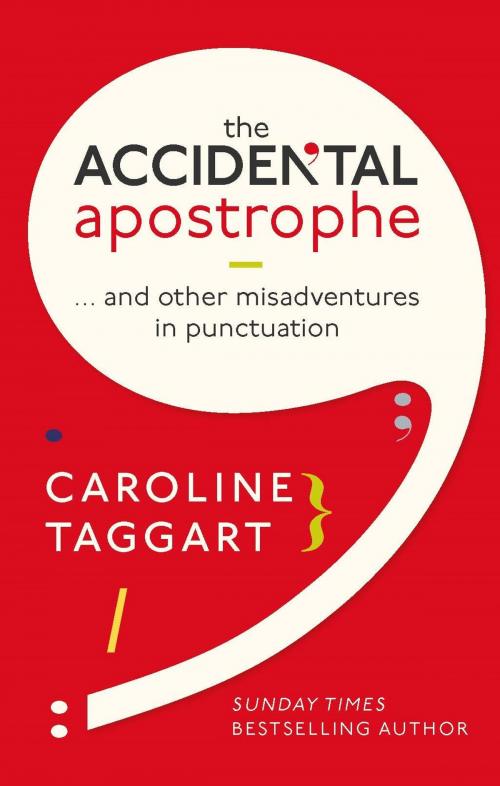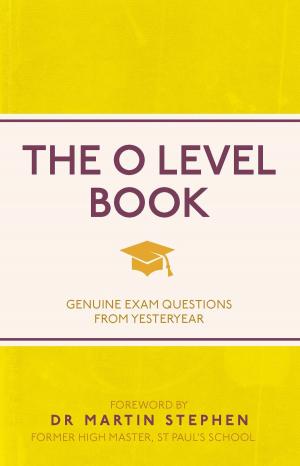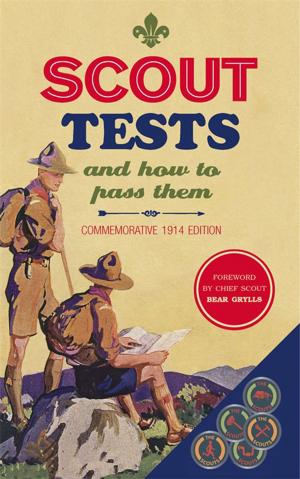The Accidental Apostrophe
... And Other Misadventures in Punctuation
Nonfiction, Reference & Language, Language Arts, Grammar, Entertainment, Humour & Comedy, General Humour| Author: | Caroline Taggart | ISBN: | 9781782438212 |
| Publisher: | Michael O'Mara | Publication: | October 19, 2017 |
| Imprint: | Michael O'Mara | Language: | English |
| Author: | Caroline Taggart |
| ISBN: | 9781782438212 |
| Publisher: | Michael O'Mara |
| Publication: | October 19, 2017 |
| Imprint: | Michael O'Mara |
| Language: | English |
Sunday Times bestselling author Caroline Taggart brings her usual gently humorous approach to punctuation, pointing out what really matters and what doesn’t. In Roman times, blocks of text were commonly written just as blocks without even wordspacingnevermindpunctuation to help the reader to interpret them. Orators using such texts as notes for a speech would prepare carefully so that they were familiar with the content and didn’t come a cropper over a confusion between, say, therapists and the rapists. As we entered the Christian era and sacred texts were widely read (by priests if not by the rest of us), it became ever more important to remove any likelihood of misinterpretation. To a potential murderer or adulterer, for example, there is a world of difference between ‘If you are tempted, yield not, resisting the urge to commit a sin’ and ‘If you are tempted, yield, not resisting the urge to commit a sin’. And the only surface difference is the positioning of a comma. So yes, you SMS-addicts and ‘let it all hang out’ Sixties children, punctuation does matter. And, contrary to what people who tear their hair out over apostrophes believe, it is there to help – to clarify meaning, to convey emphasis, to indicate that you are asking a question or quoting someone else’s words. It also comes in handy for telling your reader when to pause for breath. Caroline Taggart, who has made a name for herself expounding on the subjects of grammar, usage and words generally (and who for decades made her living putting in the commas in other people’s work), takes her usual gentle and gently humorous approach to punctuation. She points out what matters and what doesn’t; why using six exclamation marks where one will do is perfectly OK in a text but will lose you marks at school; why hang glider pilots in training really need a hyphen; and how throwing in the odd semicolon will impress your friends. Sometimes opinionated but never dogmatic, she is an ideal guide to the (perceived) minefield that is punctuation.
Sunday Times bestselling author Caroline Taggart brings her usual gently humorous approach to punctuation, pointing out what really matters and what doesn’t. In Roman times, blocks of text were commonly written just as blocks without even wordspacingnevermindpunctuation to help the reader to interpret them. Orators using such texts as notes for a speech would prepare carefully so that they were familiar with the content and didn’t come a cropper over a confusion between, say, therapists and the rapists. As we entered the Christian era and sacred texts were widely read (by priests if not by the rest of us), it became ever more important to remove any likelihood of misinterpretation. To a potential murderer or adulterer, for example, there is a world of difference between ‘If you are tempted, yield not, resisting the urge to commit a sin’ and ‘If you are tempted, yield, not resisting the urge to commit a sin’. And the only surface difference is the positioning of a comma. So yes, you SMS-addicts and ‘let it all hang out’ Sixties children, punctuation does matter. And, contrary to what people who tear their hair out over apostrophes believe, it is there to help – to clarify meaning, to convey emphasis, to indicate that you are asking a question or quoting someone else’s words. It also comes in handy for telling your reader when to pause for breath. Caroline Taggart, who has made a name for herself expounding on the subjects of grammar, usage and words generally (and who for decades made her living putting in the commas in other people’s work), takes her usual gentle and gently humorous approach to punctuation. She points out what matters and what doesn’t; why using six exclamation marks where one will do is perfectly OK in a text but will lose you marks at school; why hang glider pilots in training really need a hyphen; and how throwing in the odd semicolon will impress your friends. Sometimes opinionated but never dogmatic, she is an ideal guide to the (perceived) minefield that is punctuation.















